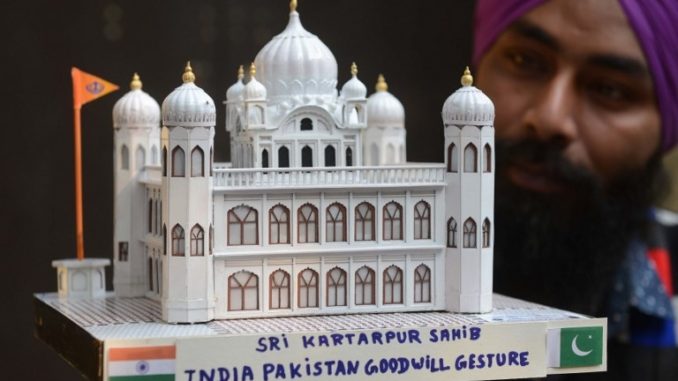
Khawaja Dawood/South Asia Correspondent for The Santiago Times
NAROWAL – Pakistani Prime Minister Imran Khan on Wednesday realized the dreams of over 120 million Sikhs around the world by inaugurating a new visa-free corridor between the most revered gurdwara at Kartarpur and the Indian town of Dera Baba Nanak.
Sikh pilgrims will soon be able to travel freely between the two holy sites, about six kilometers away, without visas for the first time since the international border was established in 1947, when India and Pakistan gained independence from Britain.
Kartarpur in Shakar Garh town of Punjab’s Narowal district houses the Gurdwara Darbar Sahib, where the founder of Sikh religion, Baba Guru Nanak, lived for 18 years until his death in 1539.
The crossing — dubbed as the ‘corridor of peace’ — is a rare sign of cooperation between the two rival South Asian countries.
Let’s Give Peace a Chance!
Addressing the big gathering of guests at the groundbreaking ceremony, including diplomats, Indian journalists, Sikh devotees and a ministerial level delegation representing Prime Minister Narendra Modi, Khan called on India to settle the 71-year-old Kashmir conflict, and eliminate poverty in both nations.
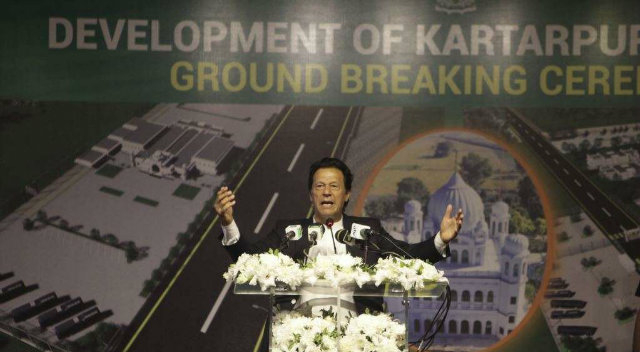
“Both Pakistan and India are nuclear powers, so war is no option as that will be a suicide. Then what else is the option except dialogue to resolve all issues,” said the former world class cricketer, who was elected to power after a 22-year struggle just 100 days ago.
“Our countries must stop blame game. If France and Germany can leave their bloody past behind why can’t India and Pakistan break the shackles of the past,” the Oxford graduate said citing examples of two European neighbors.
“If there is a will on both sides, the issue of Kashmir could also be resolved.”
In a keynote address after the ground breaking of Kartarpur Corridor in District Narowal on Wednesday PM Imran Khan has said people of Pakistan & India want friendship, stressing that the leadership of the two countries will have to be on the same page for the purpose.#Kartarpur
— PTI (@PTIofficial) November 28, 2018
Pakistani army chief Gen. Qamar Javed Bajwa also called the laying of the foundation for the crossing a “step toward peace, which our region needs.”
‘Sixer Sidhu’
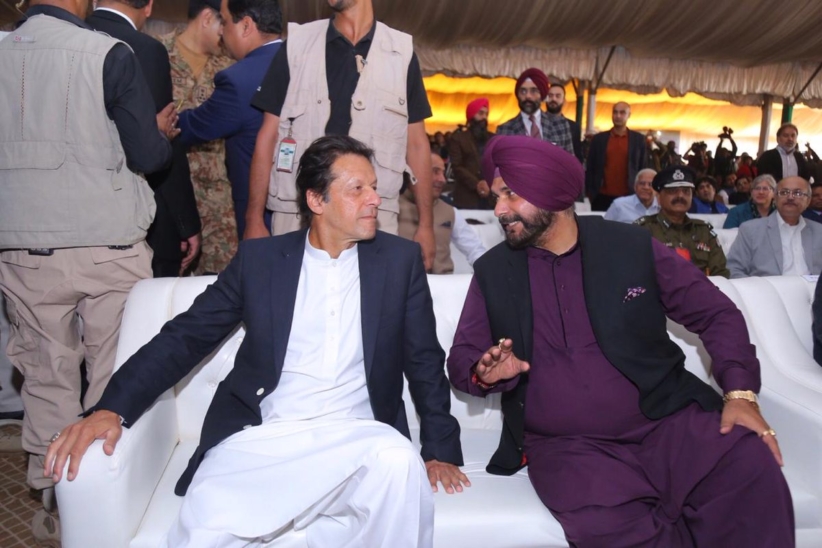
Another man of the moment was India’s own cricketer-turned-politician and ex-commentator Navjot Singh Sidhu, who said this corridor will connect the hearts of people, and will open new avenues of cooperation in agriculture, trade and tourism.
In an emotional speech, the Indian minister for Tourism and Culture said “religion should never be seen through the prism of terrorism and politics”.
Sidhu added the opening of corridor by Imran Khan will be written in golden words in history”.
But, Indian Minister of External Affairs Sushma Swaraj Wednesday played down expectations the corridor could lead to the revival of official talks between the two nuclear neighbors who regularly accuse each other of sponsoring terrorism and frequently exchange fire on the Line of Control – one of the most hostile border in the world.
Fall of (Asia’s) Berlin Wall
On Nov. 26, Indian Vice President Venkaiah Naidu and Punjab Chief Minister Amarinder Singh laid the foundation stone at the Indian side at Dera Baba Nanak. Giving the green light to the corridor’s construction last week, India’s PM Modi even compared the project to the fall of the Berlin Wall.
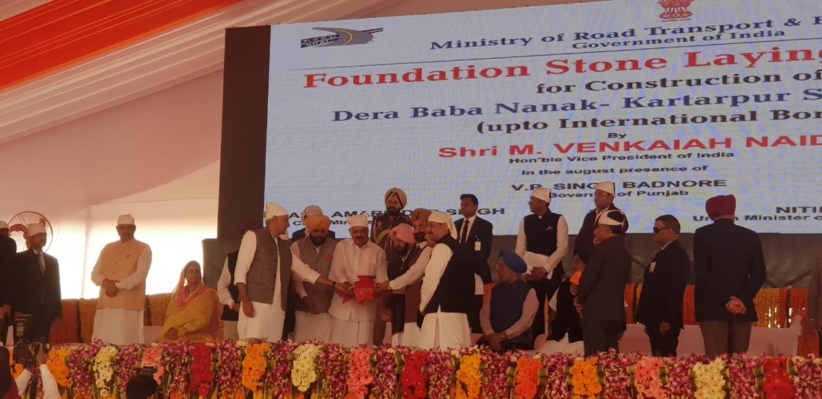
Nitin Gadkari, India’s minister for road transport and highways, has said that the corridor will be built in four months. The goal is for Indian pilgrims to be able to visit Kartarpur by November 2019, for Guru Nanak’s 551st birth anniversary.
Pakistani government has also assured Sikh visitors from India that they will find their worship place and surrounding complex a completely developed structure equipped with all facilities and comforts when they visit the country next year.
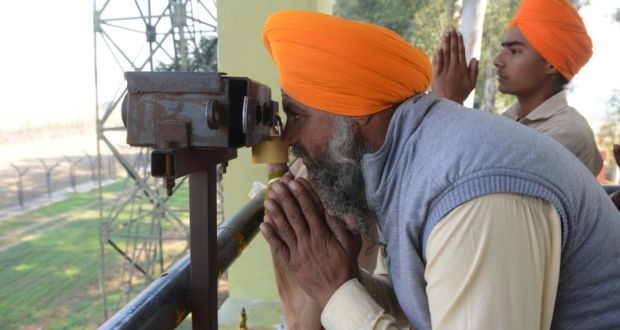
Currently, many devotees in India use binoculars to view the shrine situated a short distance away.
The Kartarpur crossing will include a stretch of road 4 kilometers (2.5 miles) long, a bridge on a river and a border complex with all facilities necessary for pilgrims. It will enable devotees to travel from the border town of Gurdaspur and across the international border into Pakistan without visas after more than seven decades.



